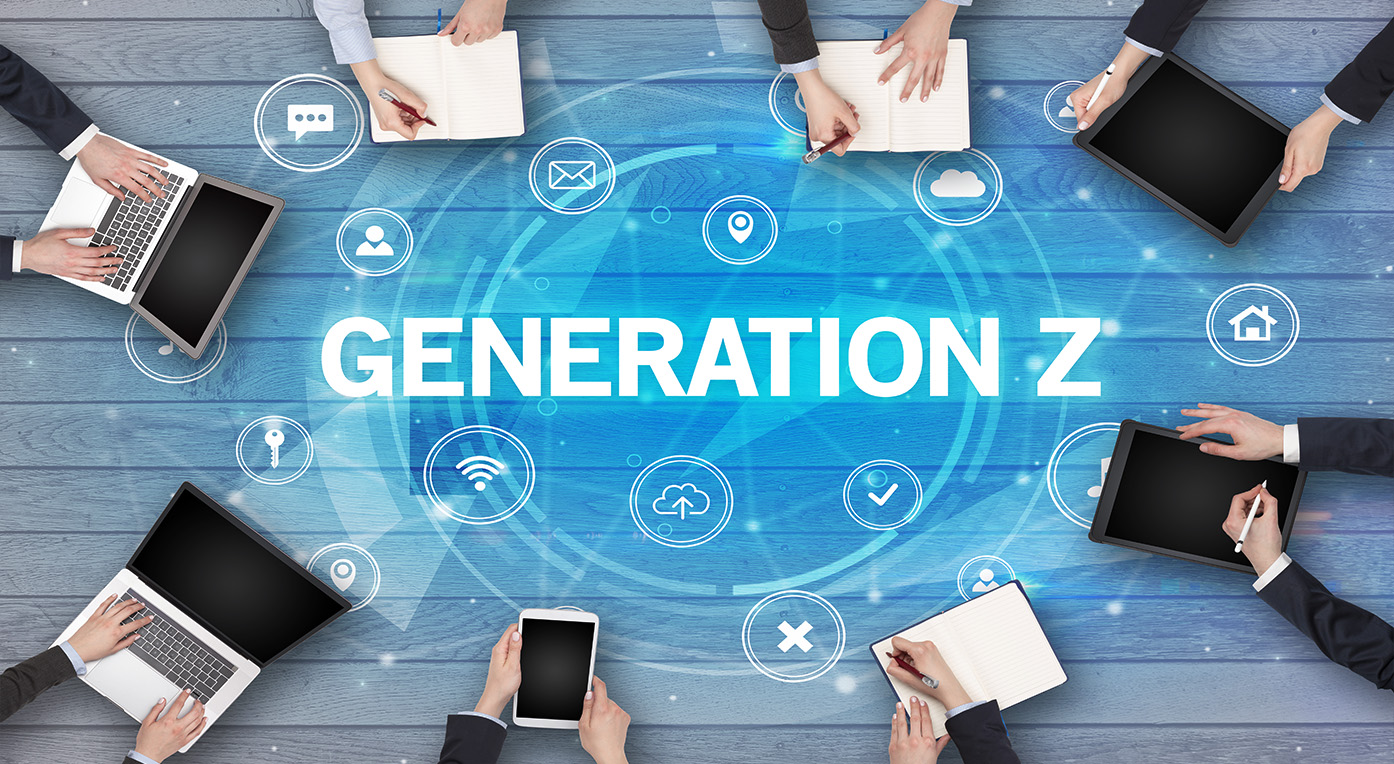Unveiling Gen Z in the Modern Workplace

EMPLOYEE SPOTLIGHT: JUHI PATEL
The modern workplace is undergoing a transformative shift as a new generation, known as Gen Z, enters the scene. Born between the mid-1990s and the early 2010s, Gen Z is characterized by its digital savviness, entrepreneurial spirit, and unique approach to work. This cohort is now a significant force, both as employees and as consumers, reshaping the dynamics of industries across the globe. With her finger on the pulse of the evolving work landscape, MMC asks HR generalist, Juhi Patel about the current trends and expectations that this generation possesses and how employers can harness these insights for mutual growth and success.
What are some unique attributes HR professionals are noticing about Gen Z employees?
Technologically Driven
“Gen Z adds to original creativity in the workplace since we all grew up in a highly connected and technologically advanced world.”
According research conducted by Dell Technologies, 80% of Gen Z aspire to work with cutting edge technology and 91% indicate that technology offered by an employer would be a factor in choosing among similar job offers. This comes as no surprise since the majority of the population has grown up using devices to supplement educational and social learning. As a result, instant connectivity is far more expected when integrating technology in work processes.
Mental Health Awareness
“Mental health awareness and work-life balance is more prominent among Gen Z compared to other generations. They are very big on being seen as more than just workers. They want an organization that sees them as an equal and treats them with compassion. When an employer is transparent and provides employees with growth opportunities this motivates them long-term.”
This generation, born into a rapidly changing world and facing unique challenges, places a strong emphasis on mental well-being. Gen Z employees are not only vocal about their mental health needs but also expect employers to create a supportive environment that addresses these concerns appropriately. Gen Z prioritizes a company’s commitment to mental health support when considering job offers, a priority that employers should consider looking at when factoring in workplace satisfaction and retention for this generation. Gen Z’s openness about mental health conversations has also contributed to a more inclusive workplace culture, where discussing mental well-being is normalized.
What are some work priorities you are noticing among this generation?
DEI
“They are a part of a diverse culture. This is an opportunity for employers to hone in on different aspects of creativity that employees bring to the table.”
The DEI whirlwind that has taken over the meaning of company culture has remained a positive force for Gen Zers since its early years. Companies that actively promote diversity and take a stand on social issues will find it easier to connect and engage Gen Z employees. Because 76% of Gen Zers report a diverse workforce an important factor when evaluating companies and job offers, it is no secret that DEI initiatives contribute to a holistic work environment in the eyes of this work force.
“The group has also shown a sense of social responsibility and desire to make a strong impact in their communities.”
Along with DEI, young job seekers have prioritized personal values when deciding where to work and who to work for, whether it’s a commitment to sustainability, philanthropy or social impact.
Remote Work
“Gen Z looks at the work-life balance that is provided by an organization. Most employees are looking for something remote or hybrid at this time.”
The COVID-19 pandemic only accelerated Gen Z’s inclination towards some form of remote work with 45% preferring hybrid and 29% preferring to work fully remote. The flexibility it offers enables them to achieve a better work-life balance and maximize their productivity.
Training & Mentorships
“Also, employees look for a mentor in their employer because it’s important that they have this trust and bond between the organization and themselves. An organic relationship is what helps the individual stay aligned with company goals and builds out effective communication channels between both parties involved.
Continuous learning practices within an organization should be valued within an organization because these development initiatives encourage employees to enhance their skill sets, and for new aspiring professionals like Gen Z, help advance their careers.
“They want to know that their company is investing their time and resources into them.”
Juhi’s Final Notes:
“To employers, it’s important to be aware of your audience when employing new employees. Follow the data and see where your company stands to make space for improvement in your workplace. To younger generations, I would advise you to stay curious and ask as many questions as needed for clarity. Build a strong network for new opportunities and remember growth and change takes time.”
Employers that understand and embrace these insights and statistics can tap into the immense potential of this generation, fostering a vibrant and innovative workplace that’s well-equipped to adapt to the demands of the future. As Gen Z continues to make its mark, it’s clear that the workforce landscape will undergo a profound evolution, driven by the unique values and perspectives of this dynamic generation.
